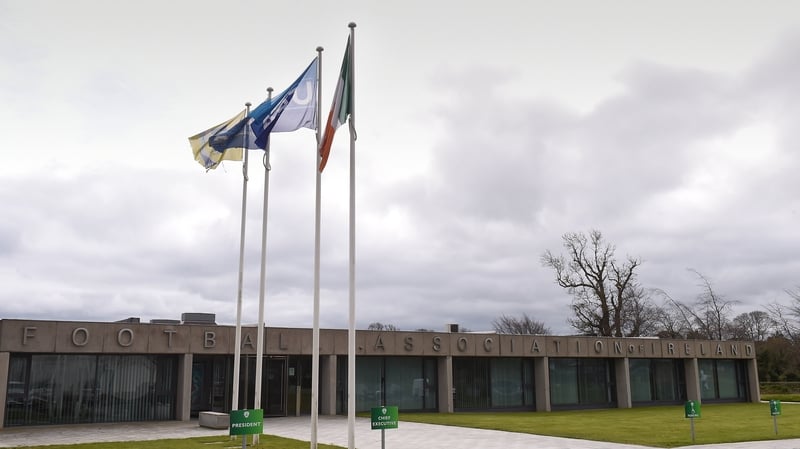The Football Association of Ireland has announced it will introduce a voluntary redundancy programme and potentially move towards compulsory job losses in what the governing body says is the start of “a significant transformation programme to modernise how football is developed and delivered in Ireland”.
In a statement issued this morning, the FAI said its restructure will begin in the coming days with the launch of the voluntary redundancy programme.
The association said that once that has been completed: “the association will then assess progress against its long-term vision and move forward with a phase of redeployment before confirming the number of compulsory redundancies required”.
No specific numbers have been given so far or terms of the exit programme for staff, of which around 251 are currently employed.
SIPTU, the union that represents a portion of FAI staff, has expressed outrage over the proposed redundancies and has written to the association and the Oireachtas Committee for Sport seeking urgent engagement on the issues of job security, governance and accountability.
SIPTU services divisional organiser Adrian Kane, said: “The FAI has shown utter contempt for its staff by outsourcing critical decisions about their futures to faceless consultants while failing to engage in any proper consultation process.
“This is an insult to the workers who have given their all to the organisation and to football in Ireland. The FAI has a duty to be transparent and accountable to its employees, yet it has kept them in the dark while threatening mass redundancies.
“We are calling on the FAI to immediately reveal the full extent of the redundancies it is planning, including the number of jobs at risk and the criteria being used. Workers have a right to know what is happening to their livelihoods and how these decisions are being made. The FAI has shown a total lack of respect for its employees, for our union, and for the wider footballing community.”
The FAI claims the move is to help with future strategic objectives, accelerate internal culture change and introduce specialist skill sets, as well as delivering increased financial sustainability
It added: “The transformation programme is informed by extensive research including, UEFA benchmarking, and has been shaped with the benefit of external guidance from specialist consultancy firms.
“The findings make it clear that the association does not currently have the required framework and specific skill sets to implement vital strategies, including the FAI Football Pathways Plan, and to meet the evolving needs of Irish football – at all levels of the game.”
SIPTU sector organiser Robbie Purfield said that any implication staff don’t have the skill set to do their work would be highly insulting for their members: “Our members are on the coal face day to day. They know the job, they know the sport, and they should be engaged with fully, through their union, to work through this process.”
The FAI said that without the job losses, both voluntary and possibly compulsory, they will not be able to deliver success on an international stage, as well as within the country.
“The association must undertake this process to ensure that all clubs, communities and counties around the country are best served and that Irish football can create a playing culture and pathway to compete as a nation, provide positive participation experiences for all, and continue to develop the game at a local, regional, national and international level.
“While the association has met on multiple occasions with SIPTU officials – who represent a portion of our staff – the senior leadership team remain committed to keeping all staff fully informed. Following the board decision, a staff meeting took place today to offer further information as the transformation gets underway.”
The Republic of Ireland’s men senior team are currently ranked 60th in the world. They have failed to qualify for a World Cup since 2002.
The women’s senior side reached the World Cup for the first time in 2023, their first major tournament.
The FAI was €70m in debt before a government-led bailout in 2020 and have significant financial restraints as a result.




